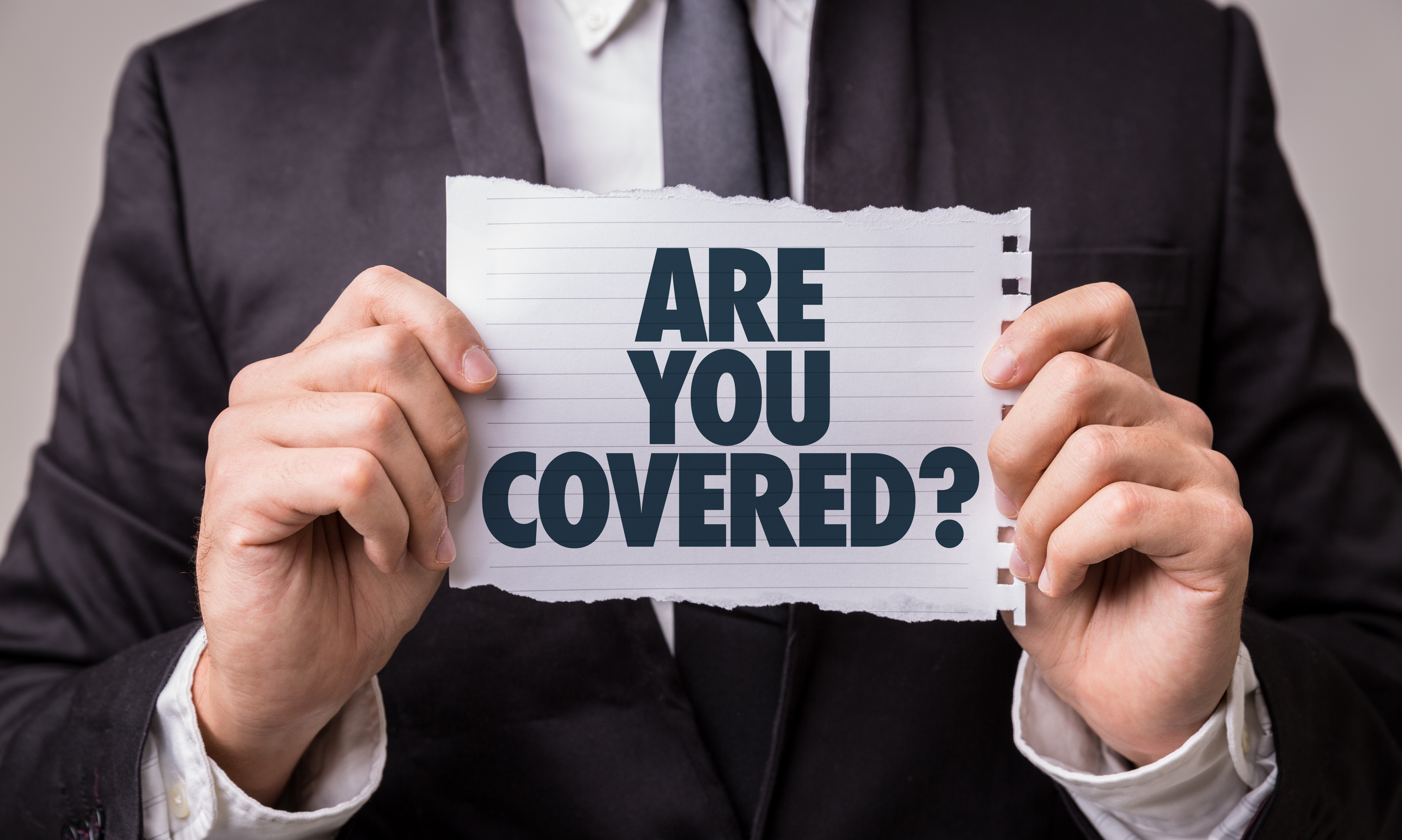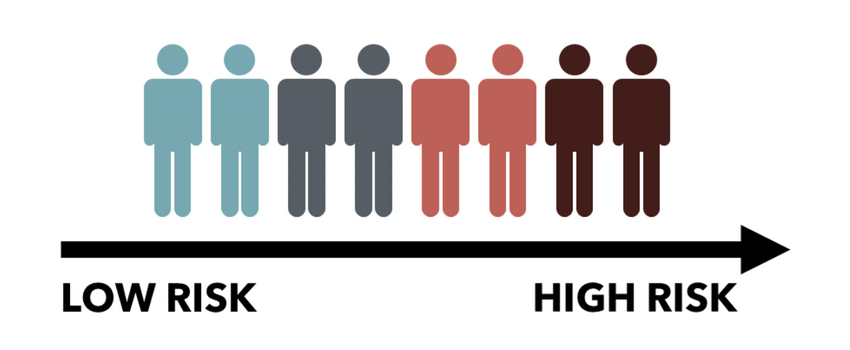High-Risk Insurance Simplified: Securing Your Future
High-risk insurance is coverage provided to individuals considered more likely to file claims. Insurers see them as higher liabilities due to various factors.
These drivers can have poor driving records, drive high-risk vehicles, or have unfavorable credit histories. As a result, insurance companies may charge higher premiums to offset the increased risk. High-risk insurance is a specialized type of coverage designed to protect both the insured individual and the insurer from potential financial losses.
It is essential for those who fall into this category to understand the implications and options available to them in the insurance market.
Introduction To High-risk Insurance
High-Risk Insurance is tailored for individuals considered higher liabilities due to various factors like driving history or credit. Insurers may see them as more costly to cover, making specialized high-risk insurance essential for these individuals seeking coverage.
| High-risk insurance is for individuals deemed risky to insure. |
| Factors include driving record, car type, and credit history. |
| High-risk drivers face higher premiums due to increased liability. |
| High-risk life insurance costs more due to health and lifestyle risks. |
| High-risk property insurance covers areas prone to natural disasters. |
| High-risk auto insurance is for drivers insurers see as higher risk. |

Credit: www.policygenius.com
Types Of High-risk Insurance Policies
High-risk insurance is designed for individuals who pose a greater liability to insurers due to their driving record, the type of cars they drive, or even their credit history. The best insurance for high-risk drivers includes auto insurance, which is tailored for drivers with a high potential for accidents. For those seeking high-risk life insurance, the cost may be higher due to added health, age, and lifestyle risks. Additionally, property insurance for high-risk areas is available for properties located in disaster-prone regions or other hazardous areas. It is important to understand the specific coverage and benefits of high-risk insurance policies to make informed decisions.
Factors Determining High-risk Status
Being designated as a high-risk driver can make it more challenging to find affordable insurance premiums. This is because insurance companies consider high-risk drivers as more expensive to insure. There are several factors that determine whether or not a driver is considered high-risk, such as their driving record and history of auto accidents. Additionally, health, age, and lifestyle factors can also contribute to a high-risk designation. Even credit history can be a factor in determining insurance risk. If you are labeled as a high-risk driver, it is important to understand your options and shop around for the best insurance coverage at a reasonable price.
Challenges In Acquiring High-risk Insurance
High-risk insurance can be challenging to acquire due to several factors. One of the main challenges is the higher premiums associated with this type of insurance. This is due to the increased risk involved for the insurer. Additionally, there are limited coverage options available for high-risk individuals, which can further complicate the process of acquiring suitable insurance. Another challenge is the difficulty in finding willing insurers who are prepared to provide coverage for high-risk individuals.
Comparing High-risk Insurance Providers
High-risk insurance providers offer coverage to individuals with a higher likelihood of filing a claim. When comparing providers, it's essential to consider the key features they offer. Look for companies that specialize in high-risk coverage and provide affordable rates. Additionally, seek insurers that offer flexible payment options and excellent customer service. Some top insurance companies for high-risk coverage include Name Your Price Tool, Compare Rates, Snapshot Discount, and Comparion Insurance. These companies can help individuals find insurance that meets their specific needs, whether for auto, home, or life coverage. High-risk insurance is designed for those who may present a greater liability to insurers due to their driving record, type of vehicle, or credit history. It's important to explore the options available and choose a provider that offers the best value and support for high-risk individuals.

Credit: access-information.com
Strategies To Lower Your Insurance Risk
To lower your insurance risk, you can take steps such as maintaining a clean driving record, choosing a safer vehicle, and improving your credit history. These strategies can help reduce the likelihood of being labeled as a high-risk insurance candidate, ultimately leading to lower insurance premiums.
| Strategies to Lower Your Insurance Risk |
| High-risk insurance refers to a category of insurance policies that are designed for people who are considered to be at a higher risk of making a claim. This could be due to a poor driving record, a low credit score, or even a history of health problems. If you fall into this category, there are a few strategies you can use to lower your insurance risk and potentially reduce your premiums. |
| Improving Your Driving Record |
| If you have a poor driving record, it's important to take steps to improve it. This could mean taking a defensive driving course, being more cautious on the road, or even getting a car with advanced safety features. By showing your insurance provider that you are taking steps to become a safer driver, you may be able to reduce your insurance risk and lower your premiums. |
| Enhancing Credit Scores |
| Insurance providers often take your credit score into account when determining your premiums. If you have a low credit score, it may be worth taking steps to improve it. This could mean paying off outstanding debts, using credit cards responsibly, or even working with a credit repair agency. By improving your credit score, you may be able to reduce your insurance risk and potentially lower your premiums. |
| Adopting Healthier Lifestyle Choices |
| If you have a history of health problems, it may be worth taking steps to adopt a healthier lifestyle. This could mean quitting smoking, exercising more, or even working with a health coach or nutritionist. By improving your overall health, you may be able to reduce your insurance risk and potentially lower your premiums. |
Navigating Claims With High-risk Insurance
|
High-risk insurance is designed for individuals who pose a greater liability to insurers due to their driving record, the type of cars they drive, or even their credit history. When filing a claim as a high-risk insured, it's important to be aware of what to expect during the claims process. The insurance company may view high-risk drivers as more expensive to insure, leading to specific considerations during the claims process. In most cases, high-risk life insurance is similar to traditional life insurance but may cost more due to added health, age, and lifestyle risks. Similarly, high-risk home insurance is tailored for properties located in areas prone to natural disasters or other hazards that increase the risk of damage or loss. |

Credit: www.sycamoreinstitutetn.org
Future Of High-risk Insurance
The future of high-risk insurance is evolving rapidly to adapt to changing risk factors and customer needs. Insurers are leveraging advanced data analytics and technology to better assess and manage high-risk profiles, offering tailored coverage options at competitive rates. This shift towards personalized and dynamic insurance solutions ensures greater accessibility and affordability for individuals labeled as high risk.
| The future of high-risk insurance is evolving rapidly due to technological advancements. These advancements have a significant impact on the high-risk insurance market trends. Predictions for the future suggest a shift towards more personalized policies tailored to individual risk profiles. Insurers are utilizing data analytics and AI to assess risks more accurately, leading to fairer pricing for high-risk individuals. Additionally, telematics devices are being used to monitor driving behavior in real-time, allowing for dynamic pricing based on actual risk exposure. |
Frequently Asked Questions
What Does It Mean To Be High Risk Insurance?
High-risk insurance means being viewed as a higher liability by insurers due to driving record, vehicle type, or credit history, making coverage more costly.
What Is The Best Insurance For High Risk?
The best insurance for high risk depends on individual factors such as driving record and car type. It's recommended to compare quotes from multiple providers to find the most suitable coverage. High-risk auto insurance companies include State Farm, USAA, Nationwide, Geico, Progressive, and Travelers.
What Is High Risk Life Insurance?
High risk life insurance typically costs more due to health, age, and lifestyle risks compared to traditional life insurance.
What Is A High Risk Property Insurance?
High risk property insurance is for properties in disaster-prone areas, increasing the risk of damage or loss.
Conclusion
High-risk insurance is designed for individuals with a greater liability to insurers due to various factors. Whether it's for auto, life, or property insurance, there are options available to meet specific needs. It's important to explore the choices and find the best coverage for your circumstances.




